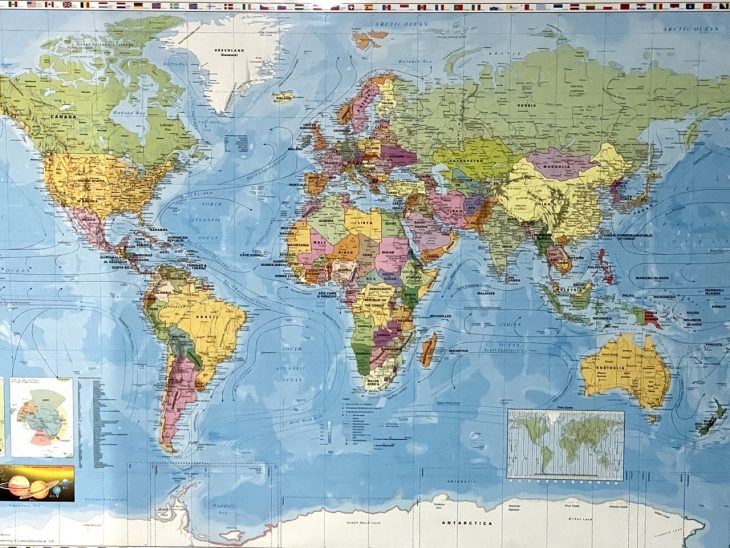
Going paperless – an impossible dream?
Vol. 26, Issue 02, 29 September 2023
Last issue I mentioned the probability that we might never see Insider in print form in the future mainly due to the diminishing number of students on campuses these days. Added to that we see more and more people used to reading digital content rather than printed formats. We have digital books, digital newspapers – or should that be news-screens, digital material for studying, digital religious publications, digital photos – when was the last time you had a set of photos printed?, when did you last pick up a pen and write something in a notebook or even a letter?, nobody sends postcards these days, even digital maps – although there have been a lot of controversies regarding digital maps and navigation in the news recently. So where does this leave us?

Some might argue that the days of paper are certainly numbered, especially it seems when it comes to the printed word. People tend to spend their work time, study time, and free time, staring at displays whether it be a computer, laptop, tablet, or phone. So surely it would be a nice change to pick up a nice crisp newspaper and flick out the pages of a broadsheet to get it to stand up as you are reading it, or turn the actual pages of a book and immerse yourself in the moment. There is nothing like the smell of a brand new book when you first read it. Then again, the smell of a very old book can be intoxicating, the mixture of leather bound pages, old paper, and long ago dried ink will have librarians salivating.
Whether you are a digital fan that craves the pixelated word or a die-hard tangible paper person, the news is that paper is not going to fully disappear in our lifetimes – although the traditional use for printing is certainly diminishing. Paper in the form of cardboard is increasing in the demand for packaging. In our consumer society where people still insist on buying new and replacing often, the demand for product packaging is at a high.
Even in our almost fully digital work, there are many reasons to keep printing texts of information. It’s all well and good to backup data in multiple locations (redundant backups), but what happens if all digital environments were to suddenly fail, what if all data were to suddenly disappear? Paper backups are still carried out by many organisations, especially governments – and we still carry paper passports at the moment – although that is possibly set to change in the very near future. Even paper maps are still needed by navigators even when they have digitized versions – just in case. Let’s not forget that many countries still rely on banknotes made of paper – although notes made of polymers are slowly taking over.
So where do you stand on the paper vs digital debate? Think about this, even in the plethora of science fiction films found today, that are set many years in the future, you will find someone with a book of some kind or other or even a printed photograph – maybe movie directors know something we don’t…
- IBSEN meeting November 2025 – Split, Croatia - 12th December 2025
- Wondering where to get lunch in Kouvola town? - 5th December 2025
- IBSEN Realgame – an international ERP/SCM experience for students - 28th November 2025
